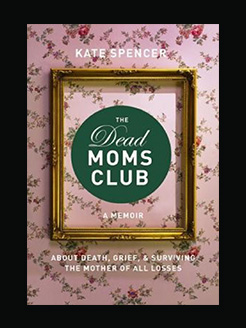Published in 2019
352 pages
Anna Mehler Paperny is a Toronto-based reporter for Reuters. She’s chased down stories ranging from the opioid crisis to migration, from post-quake Haiti to Guantanamo Bay. She has also been a staff reporter at The Globe and Mail and a reporter-editor for Global News, where she developed globalnews.ca’s award-winning Investigative Data Desk. Her work on Canadian prison deaths won the RTDNA Dan McArthur Award for investigative journalism.
What is this book about?
A vibrant, compelling memoir from a remarkable young woman that bravely reveals the real-life havoc wrought by depression and the urgent search for solutions. Illuminating, completely engaging—it’s essential reading for all since we all know someone whose life, family or friends are touched by the disease that directly afflicts a fifth of Canadians.
In her early twenties, while outwardly thriving in her dream job and enjoying warm familial support and a strong social network, award-winning journalist Anna Mehler Paperny found herself trapped by feelings of failure and despair. Her first suicide attempt—ingesting a deadly mix of sleeping pills and antifreeze—landed her in the ICU, followed by weeks of enforced detention that ran the gamut of horrifying, boring, hilarious, and absurd. This was Anna’s entry into the labyrinthine psychiatric care system responsible for providing care to millions of Canadians.
As she struggled to survive the psych ward and as an outpatient—enduring the “survivor’s” shame of facing concerned family, friends, and co-workers; finding (or not) the right therapist, the right meds; staying healthy, insured, and employed—Anna could not help but turn her demanding journalist’s eye on her condition and on the system in which she found herself. She set off on a quest to “know her enemy,” interviewing leading practitioners in the field across Canada and the US—from psychiatrists to neurological experts, brain-mapping pioneers to heroic family practitioners, and others dabbling in novel hypotheses. She reveals in courageously frank detail her own experiences with the pharmacological pitfalls and side effects of long-term treatment, and offers moving case studies of conversations with others, opening wide a window into how we treat (and fail to treat) the disease that accounts for more years swallowed up by disability than any other in the world.







